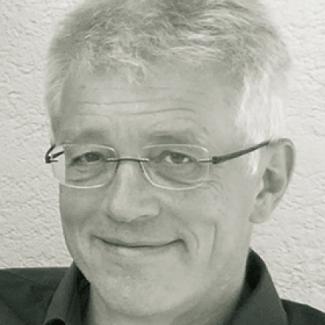Trump will not get full control of the World Bank
Kim said he will be joining a private-sector company which promotes construction of infrastructure in the developing world. He will probably make more money than he did at the World Bank, but his role will be less influential. His attempt to reorganise the World Bank did not work out well, and many staff members resent him. On the other hand, he managed the banks external relations quite successfully, so he cannot really be considered a failure. His greatest achievement was perhaps to establish good working relations with the White House. He involved Ivanka Trump, the president’s daughter, in a joint effort to promote career opportunities for women, and on that basis got the Trump administration to agree to boosting World Bank’s capital.
I guess we will be told one day why Kim made the choice he made, but so far, I really cannot tell. In the meantime, the debate on who will be the successor has taken off. Some observers warn that Donald Trump will insist on picking the next leader and that whoever that person will be, he or she will then subordinate the World Bank to US foreign policy. The first part of this warning is certainly correct, though we don’t know whether Trump will get his way. The second part is almost certainly wrong.
The unwritten rule according to which the World Bank is always headed by a US citizen and the top leader of the International Monetary Fund is always European is outdated. Trump’s predecessor, Barack Obama, was clever to propose Kim, a first-generation immigrant from South Korea. Kim grew up in the USA, but his Asian roots were relevant. After some grumbling, the governments of developing countries and emerging markets ultimately accepted him.
They will obviously demand once again that someone from Asia, Africa or Latin America should become World Bank president this time. Trump cannot simply impose his candidate, he needs to convince a majority of shareholders. It is entirely conceivable that diplomats from around the world agree on someone who is not from the USA. Trump’s authority in the USA is currently dwindling fast. Should that trend accelerate, his international influence will wane too. On the other hand, the other World Bank shareholders may, for pragmatic reasons, be willing to accept a reasonable candidate from USA.
Nikki Haley, Trump’s former UN ambassador, might be such a person. She was surprisingly good at representing the US administration without embarrassing either herself or the diplomats she interacted with. It would probably help, moreover, that she’s the daughter of immigrants from India.
In an otherwise excellent assessment of the current world scenario, the FT speculated in its Saturday edition that Ivanka Trump might become World Bank president. I don’t think that will happen. The other shareholders would be well-advised not to permit such nepotism. After all, the consensus to date has been the bank must promote good governance and fight corruption. And yes, it matters that Ivanka Trump’s husband Jared Kushner is deeply involved in some of the scandals hounding the White House.
Consensus and past agreements among shareholders are actually very important. The World Bank does not simply obey the orders of its top leader. Power within the Bank ultimately resides with the board that represents shareholders. Whoever becomes the next World Bank president, he or she will only be able to introduce the kind of gradual change with which most governments can be comfortable. U-turns on issues like climate change are extremely unlikely.
In my opinion, the other shareholder governments would now be well advised to drag their feet on appointing Kim’s successor. For the time being, Kristalina Georgieva, the former EU commissioner who became Kim’s chief-executive officer, will lead the Bank as interim president. Slowing down the selection process will serve to reduce chaos. The background is that, while Trump excels in disrupting international affairs, he has not shown any ability to build something new. Indeed, his foreign policy is mostly erratic and definitely lacks coherence. I’ll just give two examples:
- If Trump were really keen on isolating Iran, he would not withdraw US troops from Syria. The withdrawal will considerably enhance Iranian power in the region after all.
- If he was serious about endorsing national sovereignty internationally as opposed to supranational cooperation, he would be offering some kind of support to a post-Brexit Britain. In real life, Prime Minister Theresa May has made the experience that he is not a helpful ally.
P.S.: I’m old enough to remember the time when US President George W. Bush tried to redirect the World Bank by pushing through Paul Wolfowitz, one of the masterminds of his Iraq war, to become World Bank president. He was controversial from the start, and never managed to impose his neoconservative worldview on the Bank. The executive board never trusted him, and forced him to resign in scandal because of favouritism and an inappropriate sexual relationship with a staff member.
Robert Zoellick became the next World Bank president, and the other shareholders were comfortable with him. His approach was multilateral, and he did his best to involve the People’s Republic of China in World Bank affairs. His relations with Beijing were good, but European shareholders were unwilling to concede as much influence as demanded. The result was that China invited other countries to found another multilateral development bank. Most European World BanK shareholders ended up joining the Asian Infrastructure Investment Bank (AIIB), which is based in Beijing, but the USA did not. President Obama considered it a tool of Chinese foreign policy.
How the two multilateral institutions will get along in the long run remains to be seen. That important shareholders, including Germany, are involved in both is an indication that competition may not turn out as harsh as some observes in Washington predict today – but I am not going to assess that issue in this blogpost.


